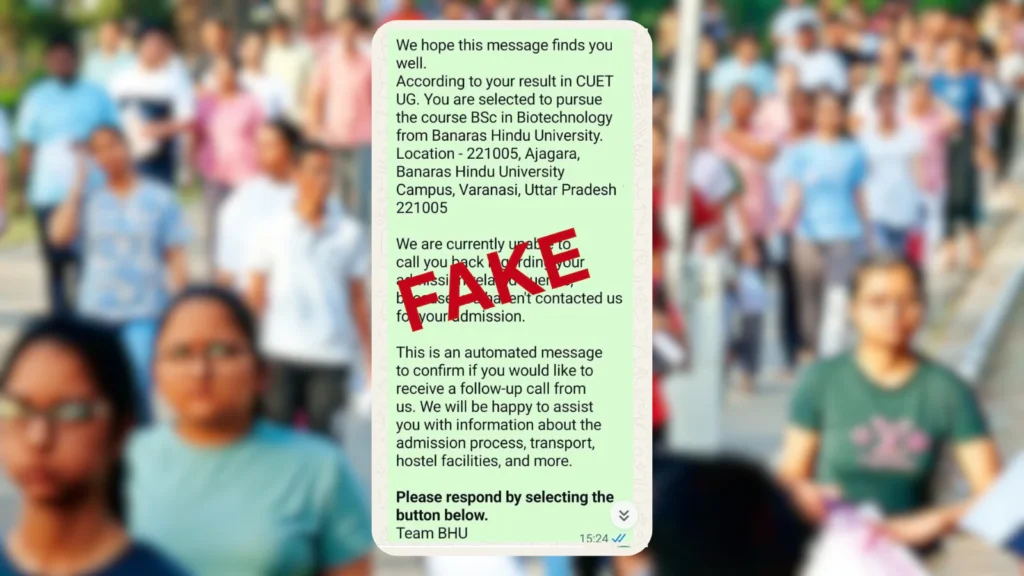
BHU Issues Alert on Fake Admission Messages: Students Urged to Trust Only Official Channels
In light of recent developments, Banaras Hindu University (BHU) has released an important advisory for students and aspirants applying for admission to its various programs. The university has cautioned against a rising trend of fake messages circulating on social media platforms—particularly WhatsApp—promising admissions through unofficial means.
According to an official notice published by BHU, several candidates have reported receiving unsolicited messages via messaging apps. These messages falsely claim to offer admission opportunities or provide “direct” links for completing admission formalities. However, BHU has made it categorically clear that it does not use WhatsApp or similar messaging platforms to communicate any official information regarding admissions.
Fake Messages Targeting Students
The warning comes after a surge in fraudulent communications that appear to target vulnerable aspirants. Many of these messages carry convincing language, making them seem like legitimate updates from university authorities. Some even include suspicious links and URLs, urging candidates to click and proceed with “admission steps” outside of the BHU portal.
These messages have understandably caused confusion among students and parents alike, especially during the high-stress period of admissions. But BHU officials have strongly advised everyone to ignore such texts and not click on any unknown or suspicious links. The university emphasized that these communications are not just misleading—they are potentially harmful scams aimed at tricking students into sharing personal or financial information.
Only Official Channels are Safe
Reiterating its standard communication protocol, BHU stated that all genuine updates about admissions, entrance tests, seat allotments, and related procedures are made available exclusively through its official website and official email IDs. These are the only trusted platforms candidates should refer to.
Candidates are urged to frequently check the BHU portal (www.bhu.ac.in) and their registered email addresses for updates. Any information or offer that comes through alternative platforms should be treated with suspicion unless verified directly through BHU’s official communication.
A Wider Trend of Admission Frauds
BHU’s advisory is part of a growing need for awareness across the country, as educational institutions grapple with cybercrime and misinformation. In recent years, fraudsters have exploited the high demand for college admissions by creating fake profiles, impersonating officials, and spreading false information through digital platforms.
Such scams not only mislead students but can also lead to serious financial and emotional consequences. The university has expressed concern over these trends and is taking steps to educate students about digital safety and the importance of verifying sources. Hence through this announcement it aims to make the students aware that they should only trust what is posted on the official websites.
What Students Should Do
In response to this situation, BHU has recommended that students:
- Rely only on official BHU channels (website and verified emails).
- Avoid engaging with messages offering admissions via WhatsApp or social media.
- Do not click on suspicious links or share personal details with unknown contacts.
- Report any suspicious communication to the university’s admission cell for verification.
The university has reaffirmed its commitment to maintaining transparency, fairness, and integrity in its admission process. It hopes that with timely alerts and clear communication, students can protect themselves from falling prey to such scams.
In an age where digital misinformation spreads fast, BHU’s proactive step to alert its students is a necessary reminder of the importance of caution. For all aspirants looking to be part of the BHU academic community, the university encourages vigilance, patience, and trust in only the official sources.
Also Read: Free Coding Courses by Google, MIT, Harvard & More
Also Read: New Zealand announces big changes in immigration rules for international students